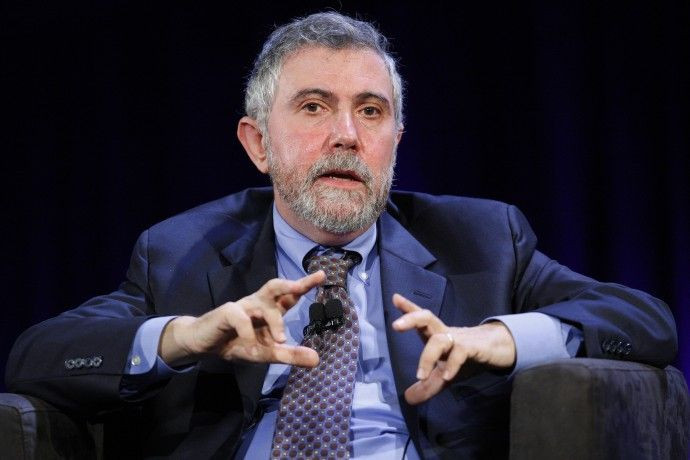Tax-cut deal could get little bang for the buck, says Krugman

Nobe Prize-winning U.S. economist Paul Krugman has said the U.S. economy is sinking with the weight of surging household debt around its neck and that policy makers are crafting measures that do not address the longer-term ills of the economy.
The root of our current troubles lies in the debt American families ran up during the Bush-era housing bubble, Krugman wrote in a New York Times Op-ed article on Sunday. Twenty years ago, the average American household’s debt was 83 percent of its income; by a decade ago, that had crept up to 92 percent; but by late 2007, debts were 130 percent of income.
He says the tax-cut deal President Obama entered into with the Republicans might get through the Congress, giving a short-term boost to the economy. But he criticizes the perception of the administration that the short-term boost is what the economy needs and that it will jump-start the economy and strengthen fragile recovery.
I say, block those metaphors. America’s economy isn’t a stalled car, nor is it an invalid who will soon return to health if he gets a bit more rest. Our problems are longer-term than either metaphor implies, Krugman wrote, adding that, bad metaphors make for bad policy.
He says a depressed economy and high unemployment stem from the indebtedness of the people. What we’ve been dealing with ever since is a painful process of “deleveraging”: highly indebted Americans not only can’t spend the way they used to, they’re having to pay down the debts they ran up in the bubble years.
Krugman says brief spurts if aid will not be helpful in addressing the situation and that what is required is spending that lasts long enough for households to get their debts back under control. However, he says stimulus measures should be planned in such a way to extract the maximum mileage.
Krugman, who has consistently championed higher government spending in the form of more stimulus, explains why he thinks the present tax deal with the administration and the Republicans will not be of as much help as perceived. He says the tax-cut deal, while costing more than the original Obama stimulus, is likely to get very little bang for the buck.
Krugman points out that tax cuts for the wealthy, and even those for the middle class, will not add much to spending. And the business tax-break will be equally futile as businesses already have much excess capacity.
He also points out that other proposed measures -- the unemployment benefits and the payroll tax break -- won't also be greatly beneficial. Unemployment benefit can only make a modest dent in unemployment and the payroll tax break will fade away quickly.
The question, then, is whether a year of modestly better performance is worth $850 billion in additional debt, plus a significantly raised probability that those tax cuts for the rich will become permanent. And I say no.
And he predicts that debate in 2012 will still be focused on short-term measures to boost the economy, with unemployment still high and the economy suffering as the good parts of the current deal go away.
The White House may think it has struck a good bargain, but I believe it’s in for a rude shock, Krugman wrote.
© Copyright IBTimes 2024. All rights reserved.




















